Table of Contents
The F1 visa interview lasts only 3 to 5 minutes. But it is one of the most integral parts of your study abroad application process. This guide will tell you what to expect during the interview and how to prepare for it. You will get an idea of how you should plan your prep, what documents you’ll need to carry, the F1 visa interview questions you might be asked, and how to answer them.
The guide also contains a list of 5 tips you should keep in mind while giving your F1 visa interview.
Let’s get started!
Things To Do Before Your Interview
As we’ve already mentioned in our blog about ‘How to get a student visa for the USA,’ you should begin your visa application process 6 months before the start date of your course.
Consequently, you would have 3 months to prepare for your F1 visa interview. And we suggest you start right away!
- Collect all your documents
The first thing you need to do after applying for the F1 visa is to go through the list of required documents and assemble them in one place for your own convenience.
Carry these papers with you when you go for the interview. Usually, visa officers do not ask for them, but it’s advisable to have them handy. - Put your finances in order
One of the primary factors that the US Consulate General looks at is your ability to fund your own education. If you can show that you and your immediate family have enough funds to both fund your education and live well while you’re abroad, the visa process will be much easier. - Read what you’ve collected
Make sure to go through your academic, application, and financial documents thoroughly so you can answer any questions around them. It’s like reading your resume before appearing for a job interview. - Know your future plans
A lot of students don’t read up enough about their course, the university they’re going to, or the city they’ll be living in. Don’t be one of them. Read up as much as you can about these things and be prepared to answer questions around them.
Read more: USA Visa Appointment | Tips and requirements
Documents for US F1 Visa Interview
You need to collect and carry a whole list of documents for your F1 visa interview. These include all the important proofs related to your identity, academics, career, and finances.
As we’ve already mentioned, the visa officer will (most likely) not ask you to share them with him, but it’s advisable to carry them all the same.
Here’s the list of F1 visa interview documents you’ll need-
- Passport
- Passport-sized photograph
- DS160 form
- SEVIS fee receipt
- Visa appointment letter
- Academic transcripts
- Degree certificate
- Test scores (GRE/GMAT and IELTS/TOEFL)
- Joining letter (if you’re a working professional)
- Salary slips for the last 6 months (if you’re a working professional)
- Relieving letter (if you’re a working professional)
- Financial documents, including bank statements, Fixed Deposit certificates, loan approval letter, proof of any liquid funds you may have, and tax returns from the past 3 years.
Note: While this is the general list of documents you’ll require, it’s always good practice to go through your visa application online and make sure you add anything else that’s been asked for.
Check out: Tourist Visa for USA from India | Application process
F1 Visa Interview Questions and Best Answers for F1 Visa Interview
Your F1 visa interview questions will revolve around 4 aspects – study plans, university choice, finances, and your post-graduation plans.
Let’s take a look at them one by one and learn how to answer them correctly
Q1. Which universities did you apply to?
Ans. Share how many colleges you applied to and why. This is where your research chops during the university shortlisting process can shine.
Q2. Which ones accepted/rejected you?
Ans. The answer to this question needs to be honest. Admit that some (if any) rejected you, but also highlight the ones that accepted your application.
Q3. Why did you choose this university?
Ans. Share your reasons behind finalizing a particular college – be it the curriculum, faculty, the location, or the college’s reputation/
Q4. Where did you complete your high school/bachelor’s?
Ans. This one’s pretty straightforward to answer; you don’t need our help.
Q5. Why are you changing your field of study?
Ans. Carefully explain the reasons behind shifting fields, make sure you highlight that you now have enough knowledge and experience in the field you’re switching to.
Q6. Who is sponsoring your education?
Ans. This one’s pretty straightforward to answer; you don’t need our help.
Q7. What does your mother/father do?
Ans. To help the visa officer understand that your family is financially capable of funding your education abroad, let them know what your parents do.
Q8. How much does/do your mother/father/you earn?
Ans. For the same reason stated above, be honest about the earnings of your family members/sponsor.
Q9. Do you have any siblings?
Ans. Again, the visa officer is trying to understand if your parents also need to support another child and if they are financially capable of doing so.
Q10. Do you have any relatives in the US?
Ans. If you have any immediate member/s from your family living in the US, let them know. Since they are already aware of the answer, it’s best to be honest about it.
Q11. Why not do this course in your country? Why the US?
Ans. Here, you can highlight that US institutions offer quality education and offer degrees that are considered valuable around the world. Through this question, the visa officer will also gauge if you’re choosing the US because of its job market and have any intentions of staying back.
Q12. What will you do after completing your degree?
Ans. If you wish to work after graduation, then say so. If you want to start something of your own, mention that. And in case you want to return to your country, make sure you bring it up.
Q13. Are you sure you won’t stay in the US?
Ans. The question, like question number 12, measures your intent to stay back in the US after graduation. Most students plan to come back to their home country a bit after graduation and spend their working lives with their families. You can also be honest about returning and working towards the benefit of your own country.
Q14. Do you have any loans/scholarships?
Ans. To help the visa officer understand that you are financially capable of funding your education abroad, let them know about any scholarships or loans you may have.
Q15. Tell me about your current employer and role.
Ans. This question is posed only to working professionals who are planning to study in the US after having had a job for a while. Again, the key here is to be honest.
Now that you have good knowledge about the list of F1 visa interview questions and answers, you can begin your prep!
Learn more: USA Immigration Visa Interview questions and answers
What if There Were a Tool to Help You Prepare Better?
Knowing all the F1 visa interview questions and answers isn’t enough.
You also have to mind your confidence, enthusiasm, body language, and several other traits while taking the interview. And in order to improve your chances, you need to practice.
This is where our AI-based Visa Interview Analyzer (VIA) can help.
To use it, simply press ‘Start,’ listen to the question being asked, and answer it the way you would during the interview.
Once this is over, wait for a few minutes and get back your results on how well you answered the questions and action points on how you can improve!
Note: You can take a 7-day FREE trial of the VIA tool as well. Just head to the iSchoolConnect website, create an account, and put it to the test!
Tips to Ace the Interview
As in any other interview, you will only have the first 30 seconds to form a solid impression on your interviewer. And to be able to do that, there are a few things you must keep in mind-
- Dress to impress – Wear formal attire – a light shirt and dark pants or a skirt – but don’t overdo it. And don’t forget to accessorize your formal wear with a watch, or earrings, rings, and light make-up, for that matter.
- Mind your body language – From the moment you enter the US Consulate General, make sure to maintain good eye contact, keep a smile on your face, practice a solid handshake. And don’t cross your arms or legs or slouch while sitting or standing.
- Say thank you – When the interview ends, make sure to shake the hand of your interviewer and thank him or her for taking the time to speak with you.
- Remember their name – Make sure you remember the name of your interviewer and mention it a couple of times during your conversation. This thoughtful gesture can change your interview results by a mile!
- Carry a briefcase with you – Keep all your documents along with a pen and paper always ready with yourself, in your briefcase.
If you have read so far, we have a bonus tip to share.
Mirror your interviewer’s body language. It shows them that you’re listening and eases their guard, putting them in a more relaxed mindset.
These points should be enough for you to start with your F1 visa interview prep.
Also read: Common US Visa Rejection Reasons and Tips
Key Takeaways
- The F1 visa interview process lasts only 2 to 3 minutes, but it is an integral part of your study abroad process.
- Start your visa application process at least 6 months before your course begins to allow ample time for preparation.
- Gather and organize all required documents in advance to ensure you have everything ready for the interview.
- Be well-informed about your chosen university, program, and future plans in the USA. Show enthusiasm about the opportunities in the country.
We hope this blog helped you understand more about the F1 visa interview process and how you can prepare for it. But if you need more information and ideas on how to nail the interview, or in case you have any doubts regarding the interview process, feel free to drop a comment or reach out to us.
We’d be very happy to help!
FAQs
Ques 1: Can I take a family member with me to the visa interview?
Answer 1: While it’s not important to bring a relative, you can do so in the event that you wish. However, they will not be permitted to enter the actual interview room with you.
Ques 2: What can I do to improve my chances of a successful F1 visa interview?
Answer 2: Be thorough in your research, practice your responses, keep a professional appearance, and answer honestly and confidently to improve your chances of success. Consider utilizing interview practice instruments like VIA for additional preparation.
Ques 3: Is it common to get asked about family members and relatives during the interview?
Answer 3: Yes, in order to assess your financial stability and ties to your home country, visa officers frequently inquire about your family, their occupations, and financial situation.
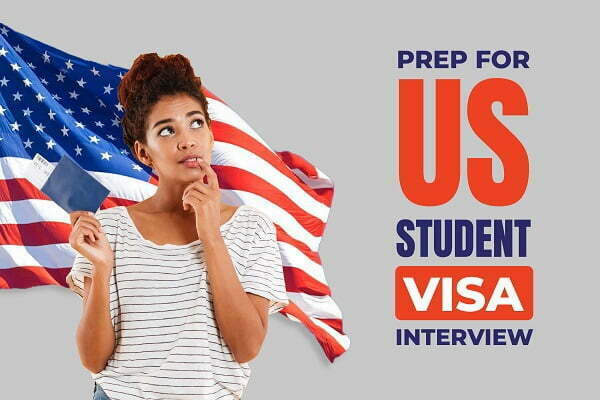
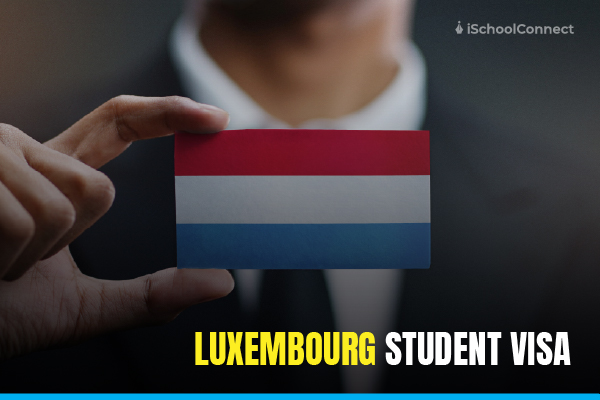

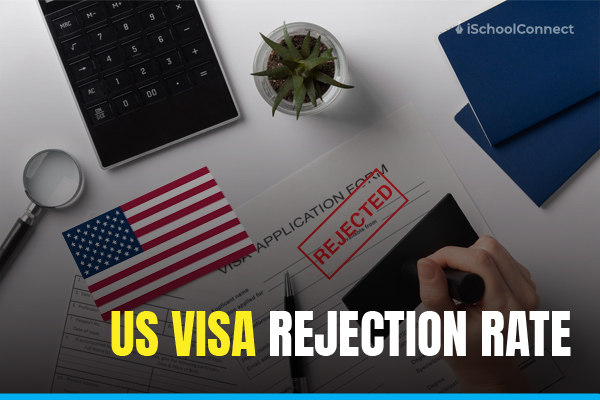
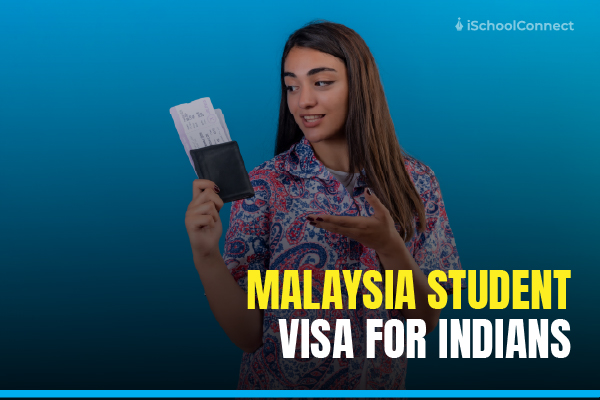

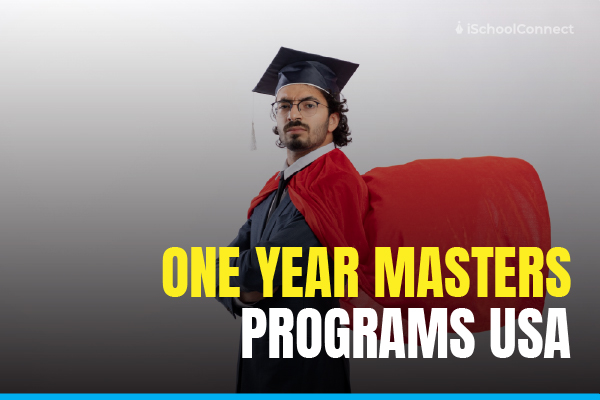
I got rejected my visa interview previously in the month of December 2nd 2021, no I reapplied for the same university and my visa slot got booked on 30th of march.for the second time how should I change my answers how well should I prepare to clear my interview please help me
Hey,
I would suggest reading our blog on 7 amazing interview tips to make a lasting impression!
One of our counselors will also get in touch with you to help you better prepare.
All the best on your journey!